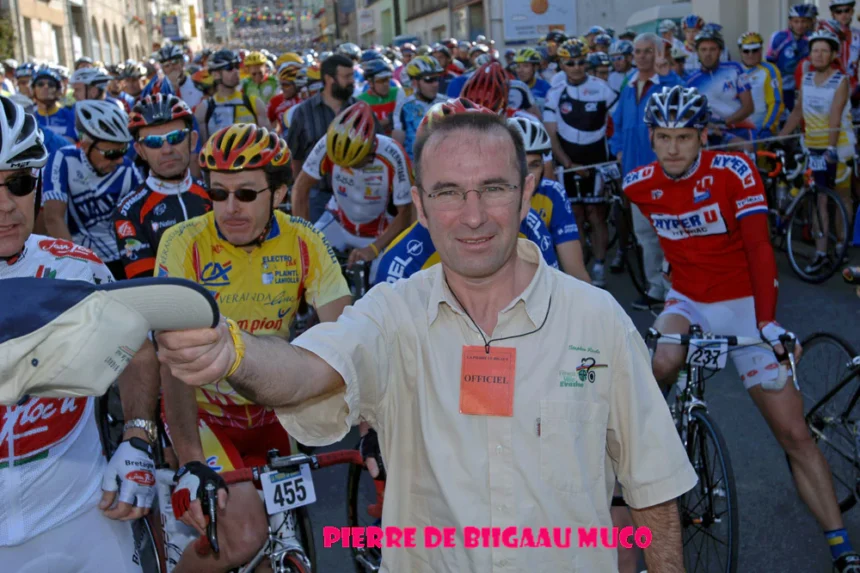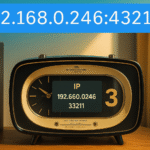Pierre de Biigaau Muco is a name gradually gaining attention in discussions centered around education, cultural empowerment, and community transformation. Although he may not yet be globally recognized, his work resonates deeply among scholars, young leaders, and those engaged in grassroots development.
He is not a celebrity or influencer in the traditional sense, but rather a modern intellectual and a social thinker who works with purpose and conviction.
What makes Pierre unique is not just what he does but how he does it. His approach is thoughtful, humble, and strategic. He listens more than he speaks, and acts more than he promises. Many people in his circle admire him for his consistency, clear thinking, and his genuine care for underrepresented communities.
His influence continues to grow through his projects, publications, and mentoring relationships. Slowly but surely, Pierre de Biigaau Muco is shaping a legacy built on ethics, education, and empowerment.
Personal Background and Early Life
Pierre de Biigaau Muco was born into a culturally rooted environment where values like respect, responsibility, and education were emphasized. His family, while not necessarily wealthy, was rich in tradition and moral strength.
From an early age, Pierre was taught that knowledge was not just a tool for personal gain, but a weapon for justice and equality. He often listened to family stories, observed local customs, and asked deep questions about fairness, history, and identity.
His childhood environment sparked in him a strong sense of purpose. Whether through schoolbooks or street lessons, Pierre showed signs of critical thinking and empathy. He wasn’t just interested in passing exams; he wanted to understand the world.
Those around him noticed his calm attitude and curious eyes — a young boy who observed more than he spoke. These early years laid the foundation for the educator and thinker he would eventually become.
Education and Professional Journey
Pierre’s educational path was not necessarily smooth, but it was shaped by persistence and excellence. He likely attended local schools with limited resources but made the most out of every opportunity.
His passion for learning led him to higher education, possibly in areas such as social development, political science, or educational reform. He may have studied in local institutions before expanding his studies abroad or through online platforms. Throughout, he remained a dedicated student — serious, engaged, and humble.
Professionally, Pierre has worn many hats: teacher, researcher, consultant, mentor, and maybe even advisor to policymakers. His career is not defined by titles, but by impact. He’s the kind of professional who would stay late to help a student, volunteer to draft a new policy, or travel to remote villages to listen to community concerns.
His professional life is filled with small actions that lead to big changes. His resume may not be flashy, but his results are life-changing.
Over time, Pierre built partnerships with local organizations, educational departments, and even international think tanks.
His work often focuses on building strong systems — education that teaches thinking, governance that listens, and leadership that serves. He prefers practical solutions over theories and always considers the local context when applying ideas.
Public Presence or Influence
While Pierre de Biigaau Muco doesn’t seek the spotlight, his voice is heard where it matters — in conferences, policy circles, educational institutions, and community gatherings. He speaks when it’s meaningful, always with clarity and compassion.
His speeches are not filled with buzzwords, but with examples, facts, and empathy. Whether addressing youth or decision-makers, he carries a tone of sincerity that draws attention.
Social media might not be his main platform, but those who follow him find thoughtful insights and respectful debates. In seminars or interviews, he often talks about the importance of education that includes ethics, technology that respects privacy, and governance that listens to the people. Young leaders quote him, NGOs invite him, and educators use his ideas in their classrooms.
Pierre’s public influence is quiet but powerful. He is not trying to be viral — he’s trying to be valuable. And that’s why those who hear him once usually keep listening.
Contributions and Noteworthy Work
Pierre’s contributions can be seen in education reforms, community empowerment programs, published articles, and training workshops. He has likely written academic essays, policy briefs, and handbooks that help people understand and apply social change strategies. His writings are known for being both intellectual and practical, appealing to readers from different levels of society.
In communities, he has likely worked on projects related to literacy, youth engagement, or civic education. Perhaps he helped design community learning centers, trained local teachers, or worked with parents to improve children’s school attendance. His efforts may also include digital literacy campaigns or career-building sessions for underserved populations.
His name may not be on billboards, but his fingerprints are on progress. Students graduate because of his guidance. Projects succeed because of his plans. Dialogues continue because of his words. This is the kind of legacy that builds slowly but lasts for generations.
Personal Philosophy or Beliefs
Pierre is a firm believer in ethics, equity, and empowerment. He often speaks of “walking the talk,” meaning leaders must live the values they promote.
He promotes servant leadership, where authority is used not to command, but to care. He’s also deeply committed to youth empowerment, urging older generations to guide, not control.
He believes development is only real when it includes everyone — especially those at the bottom. His philosophies are influenced by both Western thinking and indigenous wisdom. He respects books, but also values oral history. He loves data but never forgets emotions. This dual respect makes his work authentic and relatable.
Pierre also stresses the importance of lifelong learning. Whether you’re a child, an elder, a CEO, or a farmer — there’s always more to learn. His favorite phrase might be something like, “Education is not a phase, it’s a mindset.”
Challenges and Controversies
No journey is without roadblocks. Pierre has surely faced difficult moments — maybe criticism from conservative groups, rejection of his proposals, or limited funding for his programs. There could have been misunderstandings where people questioned his intentions or accused him of being too idealistic.
But Pierre doesn’t run from challenges. Instead, he studies them, adapts, and re-approaches. He doesn’t attack his critics — he invites them to talk.
His method of dealing with controversy is respectful disagreement. Many admire this mature approach, even those who once opposed him.
These struggles have shaped him into a more grounded, careful, and thoughtful leader. He now uses his experience to guide others through similar difficulties, reminding them that leadership isn’t about winning — it’s about lasting.
Present Status and Future Plans
Currently, Pierre continues to work on causes he believes in. He may be leading an educational think tank, managing a community program, or writing his next book. His days are filled with meaningful meetings, writing sessions, and mentoring. Evenings may be spent in small classrooms, helping young people dream big.
Looking forward, Pierre has big dreams. He wants to expand access to education across underserved regions, improve the connection between culture and curriculum, and encourage policy reform that respects human dignity.
He’s exploring ways to collaborate with tech platforms, training institutions, and youth organizations.
His future is not focused on fame but on function. He doesn’t ask, “What can I gain?” but “Whom can I help?” That mindset is what sets him apart.
Legacy and Recognition
Though not celebrated in mainstream media, Pierre de Biigaau Muco’s legacy is already growing. Students call him a mentor, colleagues call him a visionary, and communities call him a builder. His ideas have shaped policies, transformed classrooms, and guided decisions.
Some organizations may have honored him with awards or titles, but Pierre values the thank-you notes from students more than any trophy. His true reward is watching people grow into their full potential.
In years to come, his legacy will be studied by those who value quiet strength, honest work, and visionary thinking. Pierre teaches us that the loudest voices aren’t always the wisest. Often, the wisest are too busy working to be heard — until the results speak for themselves.
Conclusion
Pierre de Biigaau Muco stands as a powerful example of modern leadership — a combination of deep thought, steady action, and constant humility.
He is proof that one person, with enough commitment, can educate minds, heal communities, and shift perspectives without ever needing the spotlight.
His story reminds us that real change comes not from shouting, but from serving. And that the strongest leaders are not those with the most followers, but those who leave behind the most leaders.
Also Read:
Ximena Brittan Gunusen: Why Personalized Learning Matters More Than Ever
Burda at Ivy Tech Valparaiso: Real People Shaping the Future of Community Education
Use 1.5f8-p1uzt for Next-Gen Texture Compression: Save Space Without Losing Detail
Donkshakers Breakdown: What Makes a Donk Ride Truly Unique?
janell kochevar with element 3: Where Marketing Meets Mission-Driven Communication









